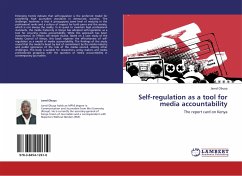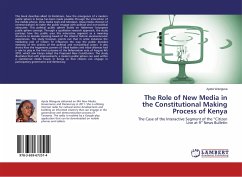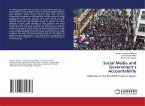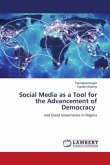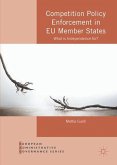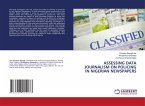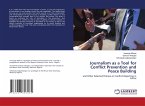Emerging trends indicate that self-regulation is the preferred model for promoting high journalism standards in democratic societies. The challenge, however, is that it presupposes some level of maturity in the professional ranks and a culture of respect for both peers and the society, which is not always the reality. In its quest to maintain high professional standards, the media fraternity in Kenya has adopted self-regulation as a tool for ensuring media accountability. While this approach has been instrumental, its effects still remain elusive. Based on a case study of the Media Council of Kenya, this book explores the effectiveness of self-regulation as a model of media accountability. The findings of the study reveal that the model is beset by lack of commitment by the media industry and public ignorance of the role of the media council, among other challenges. This book is suitable for researchers, policy makers and media professionals grappling with the question of media accountability in contemporary journalism.
Bitte wählen Sie Ihr Anliegen aus.
Rechnungen
Retourenschein anfordern
Bestellstatus
Storno

